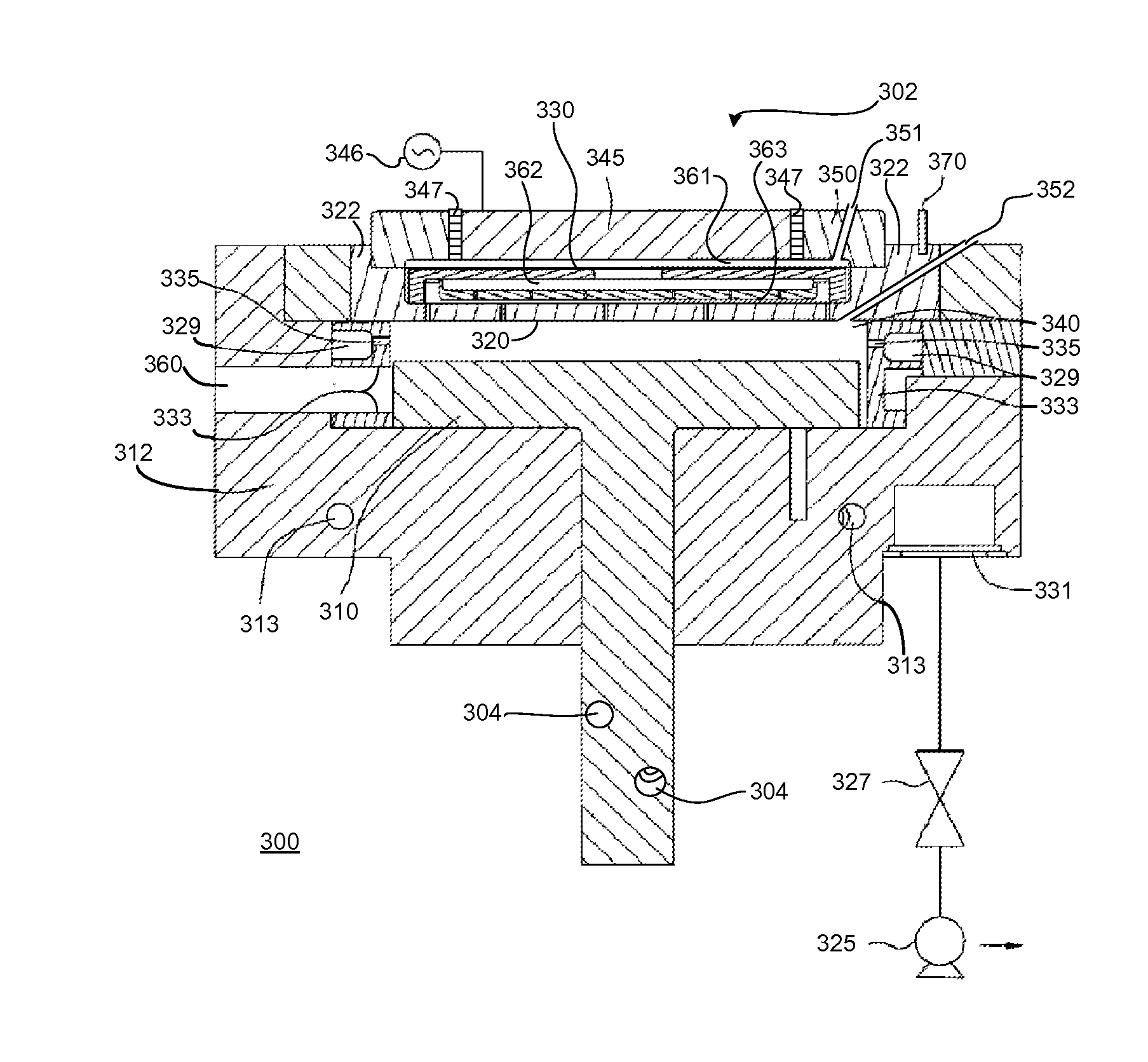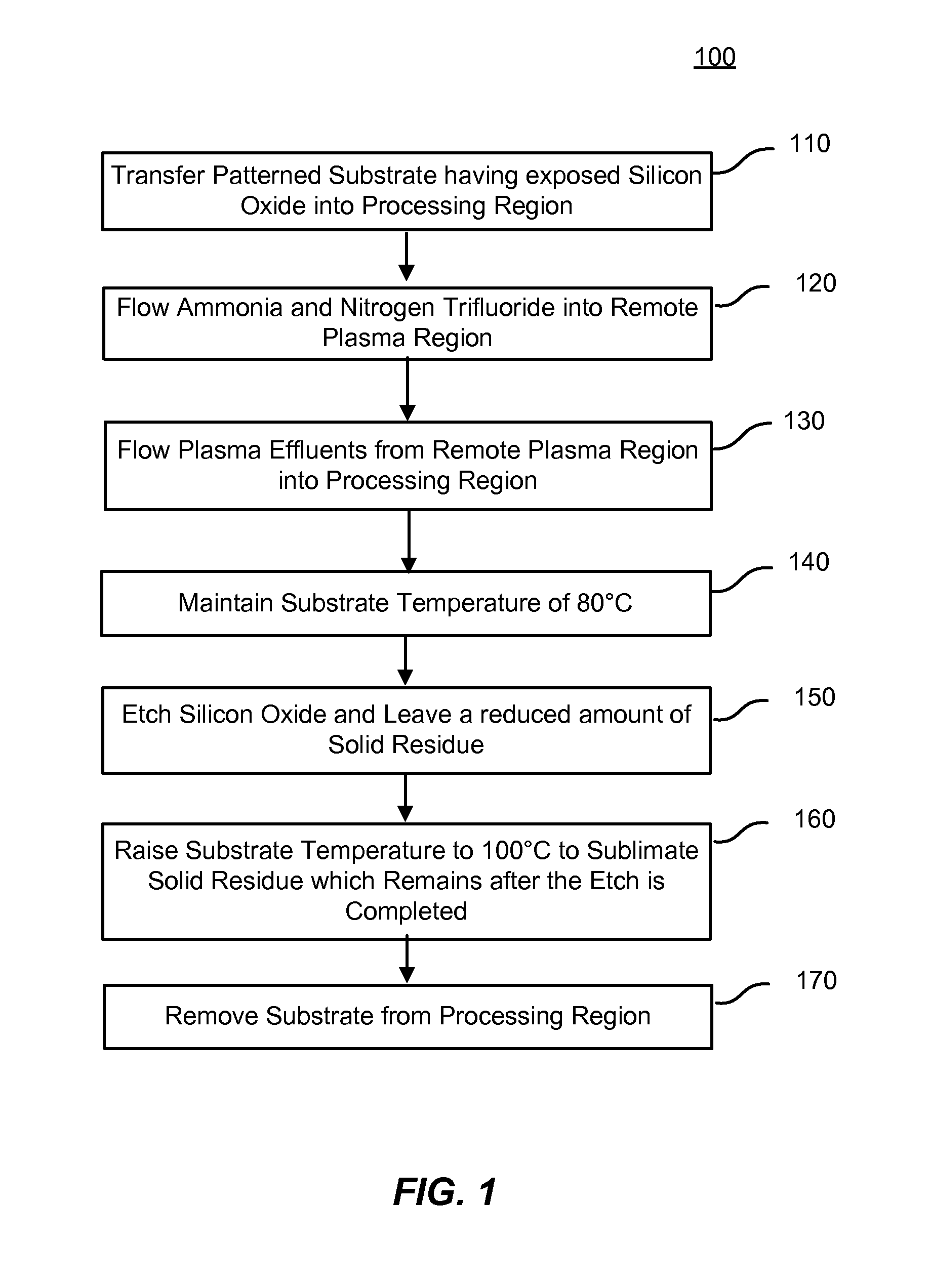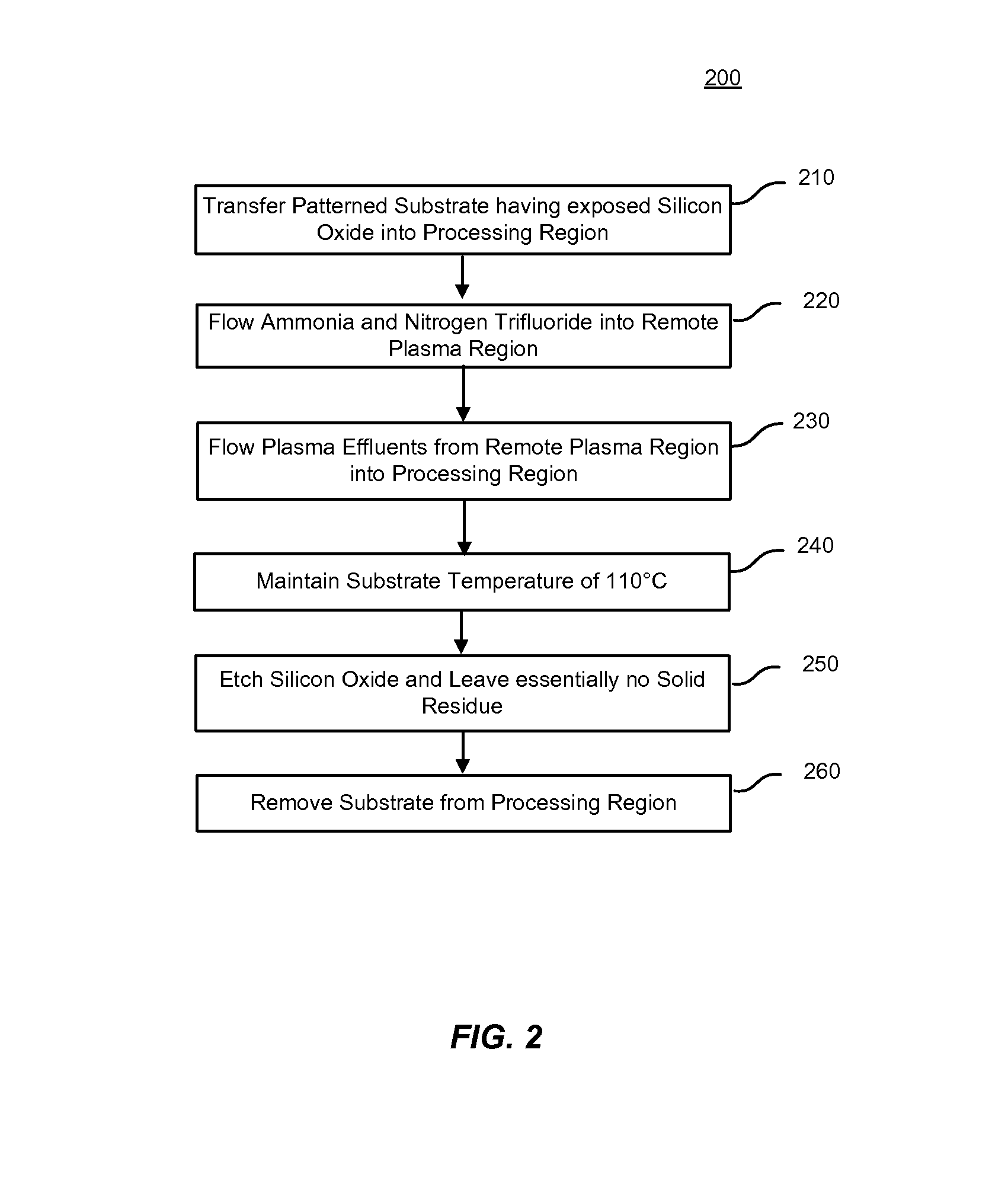High-temperature selective dry etch having reduced post-etch solid residue
a dry etching and high temperature selective technology, applied in the field of manufacturing technology, can solve the problems of slow etching, affecting the etching speed of the self-limiting process, and etching silicon too quickly, and achieve the effect of reducing the solid residue on the etched surface and high dielectric film temperatur
- Summary
- Abstract
- Description
- Claims
- Application Information
AI Technical Summary
Benefits of technology
Problems solved by technology
Method used
Image
Examples
Embodiment Construction
[0015]Methods of dry etching silicon-containing dielectric films are described. The methods include maintaining a relatively high temperature of the dielectric films while etching in order to achieve reduced solid residue on the etched surface. Partially or completely avoiding the accumulation of solid residue increases the etch rate.
[0016]Siconi™ etch processes have used a hydrogen source of ammonia (NH3) and a fluorine source of nitrogen trifluoride (NF3) which together flow into a remote plasma system (RPS). The plasma effluents created therein are flowed into a substrate processing region. Previously, substrate temperatures have been kept relatively low during the etching operation in order to remove a given amount of material during each etch-sublimation cycle. While performing a Siconi™ etch, solid by-products are formed at nucleation sites distributed across a substrate surface. The solid by-products grow larger as material is consumed from the top layer of the substrate. As ...
PUM
| Property | Measurement | Unit |
|---|---|---|
| processing temperature | aaaaa | aaaaa |
| processing temperature | aaaaa | aaaaa |
| temperature | aaaaa | aaaaa |
Abstract
Description
Claims
Application Information
 Login to View More
Login to View More - R&D
- Intellectual Property
- Life Sciences
- Materials
- Tech Scout
- Unparalleled Data Quality
- Higher Quality Content
- 60% Fewer Hallucinations
Browse by: Latest US Patents, China's latest patents, Technical Efficacy Thesaurus, Application Domain, Technology Topic, Popular Technical Reports.
© 2025 PatSnap. All rights reserved.Legal|Privacy policy|Modern Slavery Act Transparency Statement|Sitemap|About US| Contact US: help@patsnap.com



